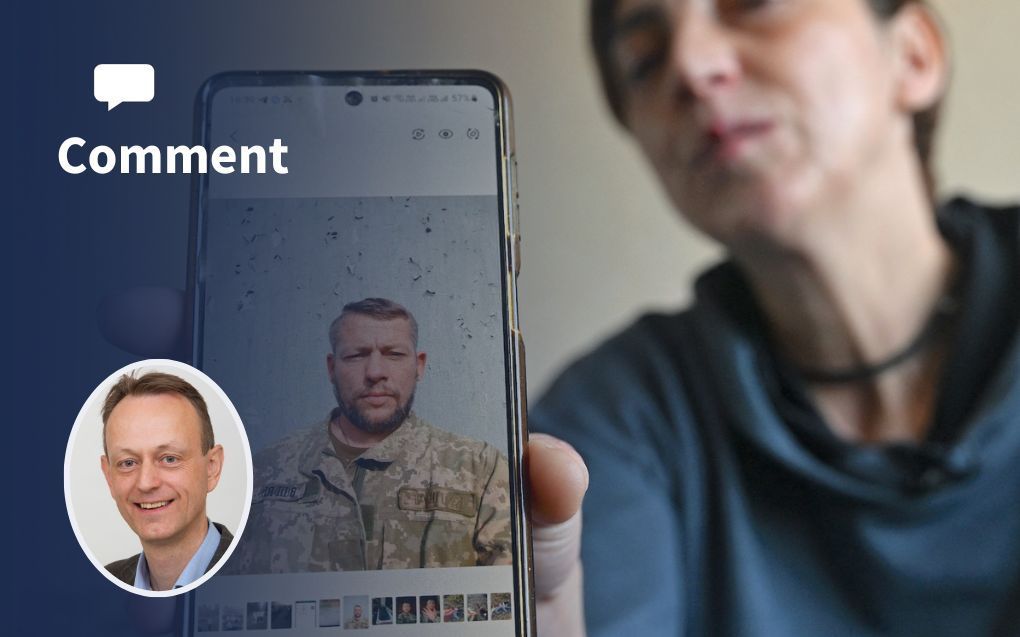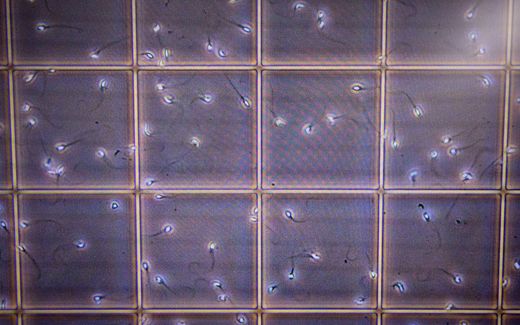Killed soldier can never 'survive' in new child

Ukrainian widow with iPhone photo of her dead husband. Ukrainian soldiers receive the option to freeze sperm, with an eye of future offspring. Photo AFP, Genya Savilov; compilation CNE
Opinion
Your son is dead! Many Israeli parents have had military officers at the door who gave that message. But now they add the question: Do you want us to freeze his sperm?
Stay up to date with Christian news in Europe? Sign up for CNE's newsletter.
Many of the 400 soldiers who died in the Israel-Hamas war were still on their own. Their parents had to say yes or no to this procedure. Half of them said yes.
The idea behind the procedure is that the semen can be used later to have offspring from the dead son. Even if he had no wife or girlfriend, there could be donor eggs and a surrogate to become the future mother.
Obviously, the motive behind this is that the son is not dead but continues to live in a (future) child. That this is comforting is illustrated by the fact in 200 cases of the 400 dead Israeli soldiers, the sperm is extracted, as The New York Times wrote recently.
Technically, it seems to be quite simple to extract the semen. A doctor uses a biopsy to take tissue from the testicles in which the semen lives. It is essential to be quick; sperm only survives 48 at the maximum after death. The earlier the seed is secured, the better.
Autonomy
The Ukrainian army handles this differently. Before the soldiers go to the front, they get the choice to deliver sperm in order to be frozen.
This makes a significant difference. In Ukraine, the soldiers themselves can decide whether this is an option for them or not. It is not their family members who decide about this in an emotional moment.
In Ukraine, a soldier can decide that he does not want to become a father in this way. In Israel, there is discussion about whether this respects the soldier’s autonomy. Perhaps he did not want to have children, or he never wanted to.
Of course, this whole procedure of getting consent and the extraction process is unexplored territory. For this reason, Israeli lawyers are still developing protocols. To really ‘produce’ a child from that semen, you have to prove that the dead person indeed wanted to have children.

It is clear that this all has an enormous social and ethical impact. Every society knows orphans, but is it okay to purposely ‘create’ them? And do we realise what burden it could be for a child to learn the only reason that he was ‘produced’ is to continue the life of this father who was already buried before he came into being?
And, of course, there is the female factor, too. The mother could vary from the married partner of the dead soldier to a hired surrogate from a poor country.
As a Christian, it is easy to say that we think the natural way of conceiving offspring is still ideal. True, but please, war is not ideal.
In the meantime, it is clear that this phenomenon will not be limited to war cases. In many Western countries, it is accepted to ask citizens whether their organs may be used after death nowadays. It is not unthinkable that at some point in the future, such a questionnaire will be expanded with options for your semen.
You might say we are living in the days of Brave New World, with a wink to Huxley and Trueman. Better to be prepared.
Related Articles











